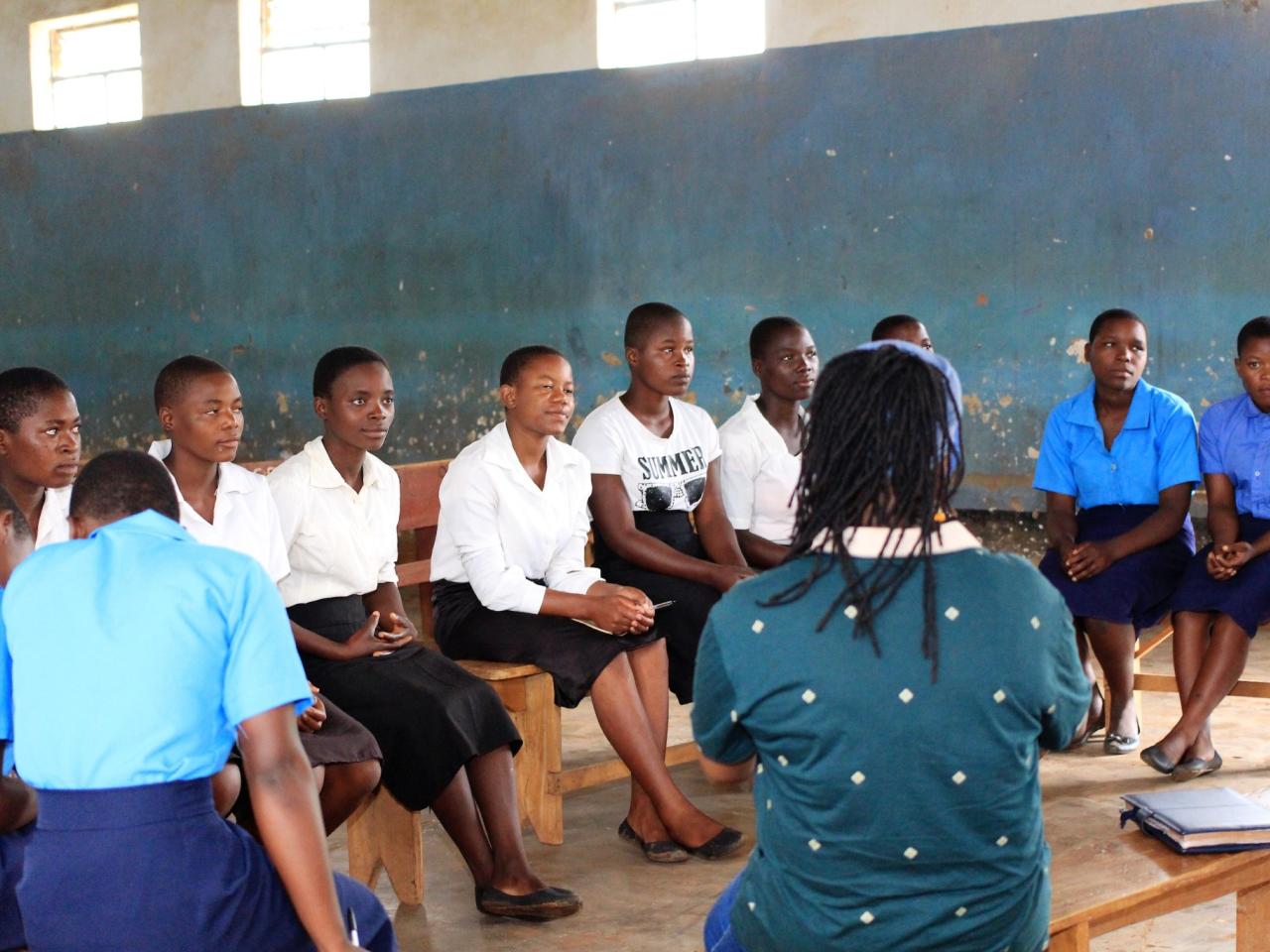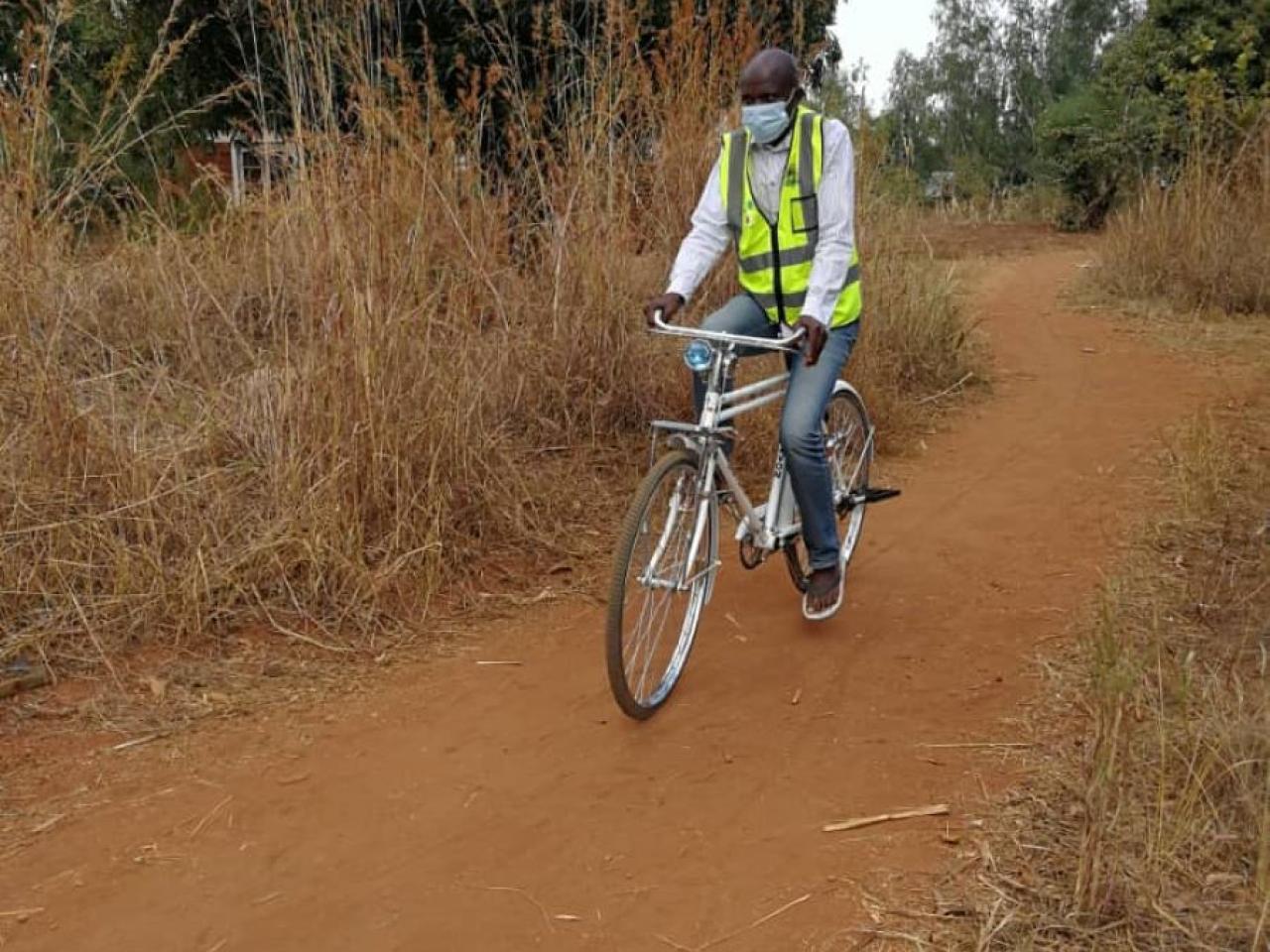Safe space mentoring: helping to end child marriage in Malawi
NKHATA-BAY DISTRICT, Malawi - Triza Nyamwera, 16, lives with her father and stepmother in Jumbo village, Nkhata-Bay District. Life isn’t easy - Triza’s father is not employed and counts on unreliable piecework to support his family. Triza was in Grade 8 when she decided to drop out of school and get married to help ease the financial burden.
“I resorted to accepting a man’s proposal because he promised me good life,” she explains. “He planned to travel to Johannesburg in South Africa to look for work. Although he said he would leave me at his parents’ village, I was assured he would take care of me.”
“I resorted to accepting a man’s proposal because he promised me good life” - Triza, 16
While Triza was waiting for her would-be husband to visit her home and make a formal proposal to her father, she met a determined young woman called Memory. Memory, 20, had been nominated by her community to undergo Spotlight Initiative-supported Safe Space training, a programme implemented by Girls Empowerment Network (GENET) in the district.
Memory had heard rumors that a young girl was planning to drop out of school and get married, so she made enquiries and reached out to Triza, inviting her to become a mentee. Triza accepted and took part in the first meeting of the Safe Space group. After the session, Memory asked Triza to stay behind to have a heart to heart about her future.
“At first, she told me she wanted to drop out of school and go to live with her relations,” says Memory. “But when I dug deeper, she opened up and confirmed that she was making plans to get married because life was hard.”
“I will work hard so I can be self-reliant in future. As for the man who wanted to marry me, he can proceed to marry. I am not ready for marriage.” - Triza, 16
Memory explained the situation to the programme’s focal person in Triza’s community and together they visited Triza at home to talk about her options. After several discussions, Triza decided not to get married and to tell the man that she was no longer interested.
Memory also spoke with the man himself to ensure he understood that child marriage is against the law.
“The focal person and I had a discussion with the 20-year-old man,” says Memory. “We told him it was against the law to marry a girl of Triza’s age. We advised him to stop his plans immediately so Triza could proceed with her education. He left angrily,” she says.
Triza, now confident of her choices, is keen to finish her education. “I will work hard so I can be self-reliant in future,” she says. “As for the man who wanted to marry me, he can proceed to marry. I am not ready for marriage.”
Child marriage in Malawi
Malawi has the 12th highest prevalence of child marriage in the world according to UNICEF. Reports indicate that in Nkhata-Bay District, more than 9 per cent of girls aged 15-19 are currently married. Poverty, limited access to education, and a lack of access to sexual and reproductive health and rights all play a role in perpetuating child marriage. COVID-19 and the subsequent closure of schools has now put many more girls at risk. This worrying trend makes the work of mentors like Memory even more critical.
Thirty-six Safe Space mentors have been trained in Nkhata-Bay District, each of whom will counsel 50 mentees per year. By working directly with communities and families, mentors are helping to change attitudes that normalize child marriage and ensure that girls like Triza are free to make their own choices.
The Safe Space model is being replicated in all the districts of Malawi where Spotlight Initiative is implemented.
By John Moyo and Lizzie Waya. Lead image: UNICEF/Giacomo Pirozzi.


